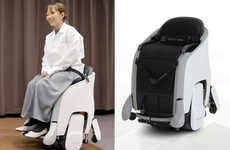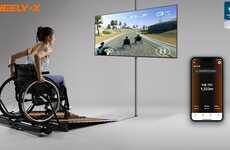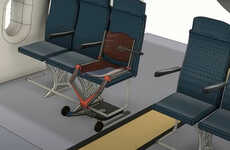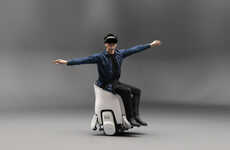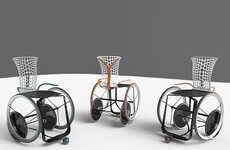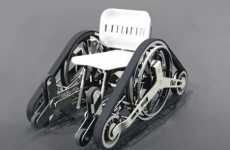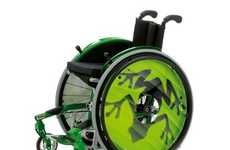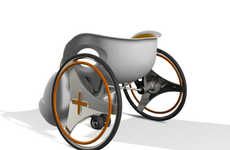
Ambient Audeo
TechnoGadget — September 10, 2007 — Unique
References: blog.scifi & gizmodo
The Audeo, developed by Ambient, is a wheel chair that allows users to control its movement with just their thoughts. The breakthrough device works by using a sensor-covered neckband to identify the brain signals and wirelessly spreads them to a nearby computer for processing. This is perfect for the disabled, whether they lack the ability to speak or to move. Check out the video after the jump.
Implications - **What impact does this have for companies that don't make wheelchairs?
Technological advances in products that are designed to help those who are disabled are highly sought after. The researchers in these products want to make the person's life easier and as close to normal as possible. By incorporating technology into these products, the company can show that they do care about the person's experience as well.
Implications - **What impact does this have for companies that don't make wheelchairs?
Technological advances in products that are designed to help those who are disabled are highly sought after. The researchers in these products want to make the person's life easier and as close to normal as possible. By incorporating technology into these products, the company can show that they do care about the person's experience as well.
Trend Themes
1. Thought-controlled Wheelchairs - Harnessing the power of thought to control movement opens up new possibilities for mobility assistance.
2. Brain-computer Interface - Advancements in brain-computer interface technology enable seamless interaction between the mind and external devices.
3. Assistive Technology - Innovations in assistive technology improve the quality of life for individuals with disabilities by enhancing mobility and independence.
Industry Implications
1. Healthcare - Healthcare providers can explore integrating thought-controlled wheelchairs into their rehabilitation and assistive device offerings.
2. Technology - Technology companies have opportunities to develop and improve brain-computer interface technologies for a wide range of applications beyond wheelchairs.
3. Disability Services - Organizations focused on disability services can leverage assistive technology advancements to offer more comprehensive and tailored solutions for individuals with disabilities.
3.8
Score
Popularity
Activity
Freshness

